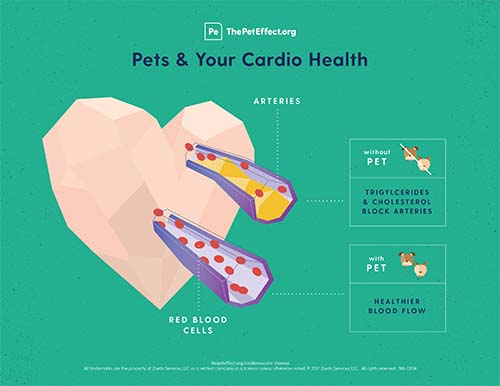Exploratory Study Funded by HABRI and EveryCat Health Foundation Provides Future Directions for Study of Welfare in Temperament Screened Shelter Cats
Washington, D.C. (September 13, 2021) — The Human Animal Bond Research Institute (HABRI) and EveryCat Health Foundation today announced the results of a new study published in the open-access Journal Frontiers in Veterinary Science, “Exploratory Study of Fecal Cortisol, Weight, and Behavior as Measures of Stress and Welfare in Shelter Cats During Assimilation Into Families of Children With Autism Spectrum Disorder”, providing preliminary evidence that temperament screened shelter cats adopted by families of children with autism spectrum disorder (ASD) did not experience a significant increase in stress after adoption by their new families.
“Benefits of companion animals in homes of families of children with autism have been identified, but little is known about the welfare of pets in these homes,” said Dr. Gretchen Carlisle, Research Scientist at the University of Missouri and Principal Investigator. “These results provide a starting point for future research exploring cat welfare, while also identifying a set of steps families can take to effectively mitigate stress in their new feline family members.”
“HABRI is particularly proud to have supported the Feline Friends study, which has already demonstrated that temperament screened shelter cats can help families of children with ASD,” said Steven Feldman, President of HABRI. “Results from this new publication focused on cat welfare are important to ensuring successful, long-lasting human-animal bonds.”
“We know how meaningful companion animals are to those with ASD and are honored to have supported this groundbreaking research showing that cats can safely and healthily fill this role is truly a win for the cats and their people,” expressed Jackie Ott Jaakola, Executive Director of EveryCat Health Foundation.
This exploratory study measured stress in temperament screened shelter cats adopted by families of children with ASD by using fecal cortisol, weight and a behavior stress measure. Findings suggest that the cats in the study acclimated to their adopted homes of families of children with ASD. Stress was mitigated through screening both the cat and the home prior to adoption, the education of the owner, as well as environmental enrichment including a safe hiding place for the cat. The reduction of fecal cortisol, as well as no reports of aggression, demonstrate that the cat’s welfare concerns were adequately addressed in this small study.
“Cat stress can be a major source of relinquishment back to shelters. Through this research, we hope to support successful shelter cat adoptions by providing families and shelters with a roadmap for creating good matches. By screening cats for temperament, educating families about cat behavior, and providing additional resources towards reducing cat stress, we can help strengthen the human-animal bond and prevent relinquishments,” added Dr. Carlisle.
The results of this publication represent findings of a larger study funded by HABRI and EveryCat Health Foundation, the Feline Friends study, which investigated the effect of a shelter cat on social skills and anxiety in children with autism. The first publication in the Journal of Pediatric Nursing, found cat adoption was associated with greater empathy and less separation anxiety for children with ASD, along with fewer problem behaviors including externalizing, bullying and hyperactivity/Inattention. The second publication in the Animal Studies Journal demonstrated the effectiveness of the Feline Temperament Profile (FTP) in assessing the behavioral responses of cats in different situations. Results also indicate that the FTP may be shortened with no loss of reliability to serve as a quick and practical tool for animal shelters and rescue organizations to assess a cat’s temperament to find compatible homes and reduce the likelihood of cat relinquishment.
About HABRI
HABRI is a not-for-profit organization that maintains the world’s largest online library of human-animal bond research and information; funds innovative research projects to scientifically document the health benefits of companion animals; and informs the public about human-animal bond research and the beneficial role of companion animals in society. For more information, please visit https://www.habri.org/.
About EveryCat Health Foundation
EveryCat Health Foundation, a non-profit organization established in 1968, advances feline health by supporting groundbreaking research and education. Its work worldwide has funded nearly $8 million in cat health research at more than 30 partner institutions. Efforts are made possible through the generosity of dedicated donors and collaborators. Research supported by EveryCat Health Foundation helps veterinarians by providing groundbreaking research that improves treatment of common feline health problems and prevents many diseases. Grants are awarded at least twice yearly with the help of the foundation’s expert review panel. For further information or to support feline health research, please visit www.everycat.org.
Contact
Jamie Baxter
jamie@theimpetusagency.com
775.322.4022
###





